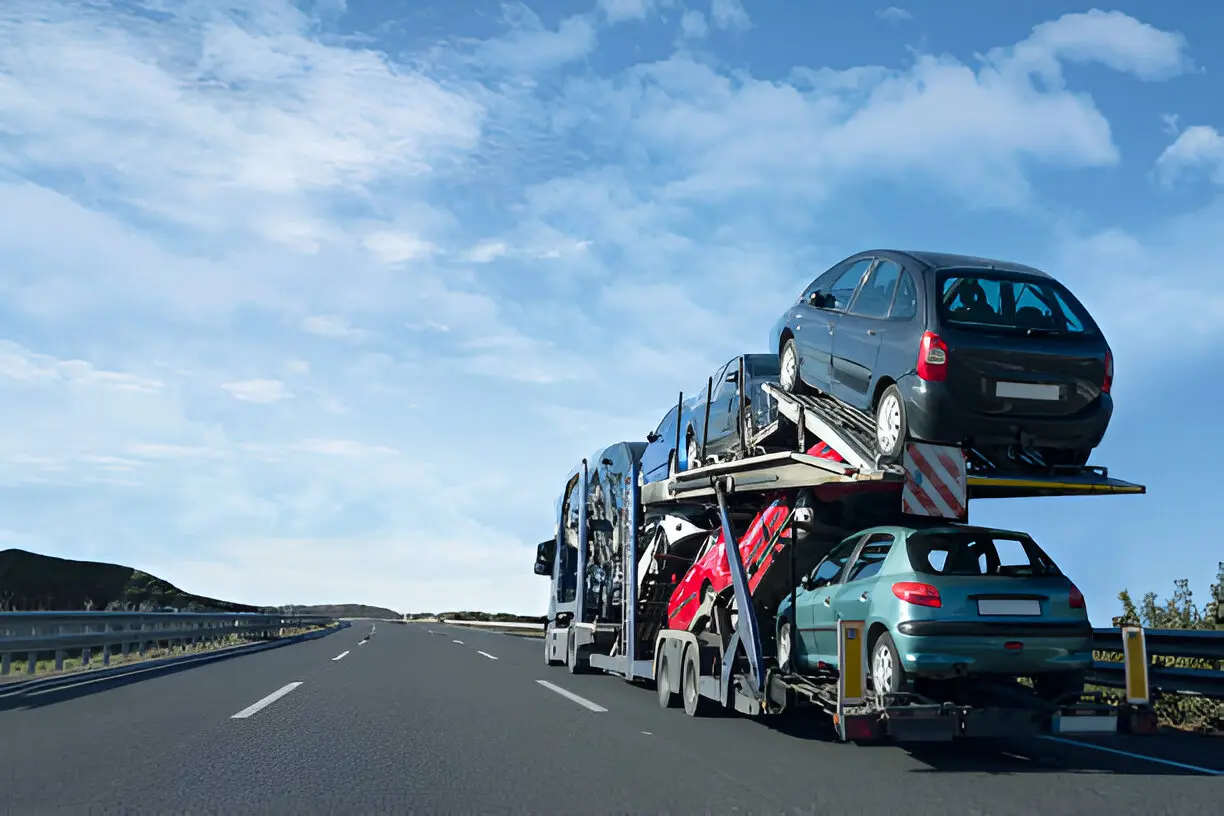The car shipping business, like most others, is very dependent on gas prices. Over the past few years, increasing fuel prices have had a big impact on how car shipping services are charged and transported. Whether shipping a vehicle nationwide or just within a couple of states, you need to know how fuel prices drive costs when arranging your move or sale.
In this blog, we’ll explain how rising fuel prices directly impact car shipping rates, what it means for consumers, and how to make informed decisions when choosing a cars transporteur.
Why Fuel Prices Matter in Auto Transport
Fuel is probably the biggest cost of operation for any car transport business. Transporters have big diesel-powered rigs that use a lot of fuel, particularly when hauling heavy loads over long distances. As fuel prices rise, so does the expense of operating a car shipping business. These additional costs are usually passed along to the consumer.
Direct Cost Impact
When diesel prices increase, the quoted shipping rate is, more often than not, proportionate. For example, where a coast-to-coast shipment that may have, at its cheapest, cost $1,000, such a shipment now could balloon to $1,200 or even more, depending on current fuel prices. While carriers can absorb minor fluctuations, consistent increases force them to adjust their pricing models.
Fuel Surcharges and Dynamic Pricing
Most carriers nowadays incorporate fuel surcharges—a percentage add-on to the standard shipping rate to offset greater fuel prices. The surcharge is raised on a periodic basis, dependent on regional or national average fuel prices.
Auto transport companies also use dynamic pricing, which takes into account fuel, demand, and seasonality. As prices change from week to week or even daily, obtaining several quotes and booking ahead will help secure a good bargain.
Seasonal Patterns and Fuel Price Volatility
Increased fuel prices are generally driven by:
- Global fluctuations in the oil market
- Seasonal highs (particularly summer and winter months)
- Natural disasters or geopolitical conflicts
- Refinery shutdowns or supply chain outages
Fuel prices tend to rise during peak-demand seasons (such as summer)—resulting in higher rates across the board. This increases express towing or expedited rates even further in comparison to regular shipping.
How Shippers Are Responding
To counter increasing operating expenses, cars transporteur companies are implementing various measures:
Route Optimization
Carriers are employing GPS and logistics software to minimize deadhead miles (movement without load), thereby achieving better fuel efficiency.
Load Consolidation
Transporters attempt to consolidate several shipments on a single route to split the cost of fuel among more customers. It may slightly elongate delivery time, but it heavily reduces cost.
Fleet Modernization
Some firms are buying fuel-efficient or alternative-fuel trucks, but these switches require time and investment.
What It Means to Car Owners
If you’re sending your car overseas in the near future, higher fuel costs may impact your overall expense more than you realize. Here’s what you need to know:
1. Reserve Early
Fuel prices can shift quickly. Early reservation usually locks in a lower rate ahead of further price increases.
2. Be Flexible with Delivery Dates
Flexibility enables carriers to consolidate shipments more effectively, which can save you from extra surcharges.
3. Compare Multiple Quotes
Compare quotes. Make use of online websites to obtain quotes from different car shipping companies so that you can compare prices and plans.
4. Open vs. Enclosed Transport
Enclosed transport is more fuel-hungry because of increased weight and drag. If you’re not shipping a luxury car or classic vehicle, open transport will probably be the more cost-effective option when gas is expensive.
The Ripple Effect: Beyond Car Shipping
It’s not only your shipping price that’s impacted. If you’re selling your car as well, increased transportation fees can cut into your profits—particularly if you’re selling to customers outside your state or to dealerships.
Knowing where I can sell my car for the most money becomes all the more important. Local purchasers get rid of shipping altogether. If you have buyers ready to offer you more from a distance, do some math and calculate your net profit after shipping charges to determine whether the transaction is worthwhile.
Express Towing: An Expensive Convenience
When time is of the essence, express towing services deliver speed—but at a cost. As gas prices rise, the cost increases even more. If you’re moving, purchasing an automobile out of state, or selling one in a hurry, know that speed will be more expensive during fluctuating fuel prices. Unless an emergency, decide if expedited shipping is really worth the extra expense.
Long-Term Outlook: Will Prices Come Down?
Though fuel prices may fall temporarily, the long-term direction is usually upward as a result of inflation, green policies, and supply-demand factors. The car shipping business is also working on cleaner, more efficient means, but that relief will not be short-term.
That leaves consumers to anticipate that car shipping will remain exposed to fuel fluctuations and budget accordingly. Intelligent planning and wise decision-making will alleviate unnecessary expenditure.
Final Thoughts
Gas prices contribute heavily to determining the cost of having your vehicle shipped. With long-distance relocations to rush service, gas prices are factored into all estimates you get from car shipping businesses. Knowing how these expenses are determined and how they influence the services you use can help you make wiser financial choices.
Whether you’re looking to move my car across states or preparing your moving checklist for a cross-country relocation, factoring in fuel price trends is just as important as choosing the right carrier. In a market that changes quickly, knowledge is your best asset.








